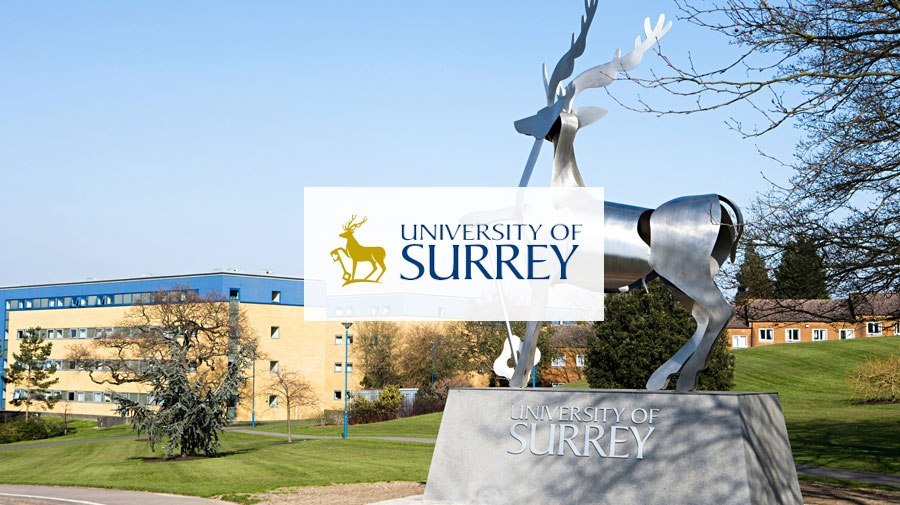Space Engineering PhD
Why choose this course
The Surrey Space Centre (SSC) is the largest UK academic centre for space engineering research. With a host of expert academics and close links with industries, SSC offers the ideal research environment for the next generation of space scientists, engineers and entrepreneurs.
As a PhD candidate within the Centre, you will work alongside academics, postdoctorate researchers and fellow postgraduate researchers, as they push the boundaries of low-cost small satellites and develop new innovative technologies. You will also benefit from the Centre’s strong academic-industrial strategic partnership with both Surrey Satellite Technology Limited (SSTL) and Airbus DS.
Throughout your research you will have access to our world-class academic research facilities, covering advanced multidisciplinary small satellite and space system engineering techniques for Earth orbit and interplanetary space; innovative communications, remote sensing, robotics and space science payloads for small satellites; and enabling technologies for low-cost space exploitation and planetary exploration.
Following completion of your PhD you will able to apply for membership with the Institute of Engineering and Technology (IET), Chartered Engineer status with the Engineering Council UK and the Institute of Electrical and Electronics Engineers (IEEE).
What you will study
Postgraduate researchers are registered for a maximum four year period of full-time study. After twelve months you write a confirmation report, which is assessed by two independent examiners. You will submit a written PhD thesis after a minimum three years of full-time study. A detailed evaluation of progress and future research plans is made every six months to ensure that progress towards completion of the PhD remains satisfactory.
You will be allocated two Surrey-based academic supervisors, in addition to any external collaborative supervisors. Your principal supervisor will be an expert in your area of research and will be in charge of monitoring your research progress. The supervisors will help you to define the initial objective and scope of your research, and to refine these as the project evolves. They will direct you to resources to help you learn the necessary experimental, theoretical or computing skills and will advise you on the completion of your PhD and the content of your thesis. External collaborative supervisors are appointed in many cases, in order to contribute specific expertise or facilitate access to resources or organisations.
Your office space will be located at the Surrey Space Centre building and you will typically share office alongside researchers with related research interests. As a PhD student you will be assigned to a research group which includes a team of academics, postdoctoral researchers, guest scientists and fellows.
Many areas of research at SSC are inter-disciplinary and you are likely to have the opportunity to collaborate with scientists at universities, research establishments, and industries around the world. If your PhD project is collaborative it may involve travel for meetings with collaborators and access to specialised facilities.
SSC monthly seminars are open to all postgraduate researchers. You will get an opportunity to attend presentations by each research group and all PGRs are expected to present their individual research on the day of their group’s presentation. In addition to these internal seminars, there are regular opportunities to attend invited lectures, by renowned external speakers, organised by different research centres and departments within our Faculty.
Furthermore, you will be able to meet other researchers, academics, and other staff at informal PGR forum meetings, and get involved in organising the PGR conference, social or other events.
Research support
The professional development of postgraduate researchers is supported by the Doctoral College, which provides training in essential skills through its Researcher Development Programme of workshops, mentoring and coaching. A dedicated postgraduate Careers and Employability team will help you prepare for a successful career after the completion of your Ph.D.
Research themes
Our nine research themes cover a range of topics including, but not limited to, the following:
- Astrodynamics
- Autonomy and robotics
- Environments and instrumentation
- On-Board data handing
- Plasma propulsion
- Remote sensing applications
- Robotics and control
- Space environments and protection
- Space structures, material and mechanisms.
Other activities, such as space debris removal, solar sails, and nanosatellite mission development, are being carried out across multiple research groups.
Intakes
- Oct
Application Processing Time in Days: 20
Minimum English Language Requirements
| English Level Description | IELTS (1.0 -9.0) | TOEFL IBT (0-120) | TOEFL CBT (0-300) | PTE (10-90) | |
|---|---|---|---|---|---|
| Expert | 9 | 120 | 297-300 | 86-90 | |
| Very Good | 8.5 | 115-119 | 280-293 | 83-86 | |
| Very Good | 8 | 110-114 | 270-280 | 79-83 | |
| Good | 7.5 | 102-109 | 253-267 | 73-79 | |
| Good | 7 | 94-101 | 240-253 | 65-73 | |
| Competent | 6.5 | 79-93 | 213-233 | 58-65 | |
| Competent | 6 | 60-78 | 170-210 | 50-58 | |
| Modest | 5.5 | 46-59 | 133-210 | 43-50 | |
| Modest | 5 | 35-45 | 107-133 | 36-43 | |
| Limited | 4 | 32-34 | 97-103 | 30-36 | |
| Extremely Limited | < 4 | < 31 | < 93 | < 30 |
Admission Requirement / Eligibility Criteria
Applicants are required to have either:
- A minimum of a 2:1 UK honours degree or a recognised equivalent international qualification, in a relevant discipline
- A 2:2 degree and a distinction at masters level.
- Course Type: Full Time
- Course Level: Doctoral Degree/PhD
- Duration: 04 Year
-
Total Tuition Fee:
88000 GBP
Annual Cost of Living: 9207 GBP
Application Fee: N/A
Similar Programs
- Micro- and NanoMaterials and Technologies EngD at University of Surrey
- Engineering Materials PhD at University of Surrey
- Engineering Materials PhD at University of Surrey
- Engineering Materials PhD at University of Surrey
- Engineering Materials PhD at University of Surrey
- Biomedical Engineering PhD at University of Surrey

